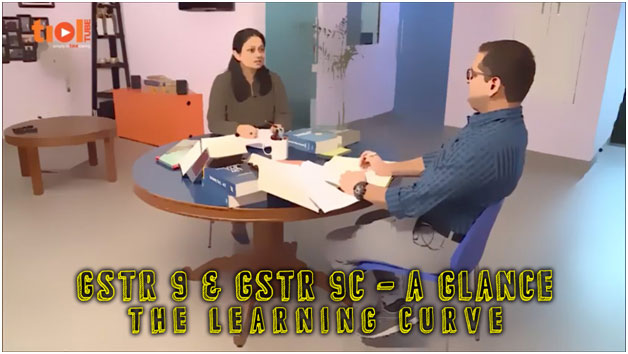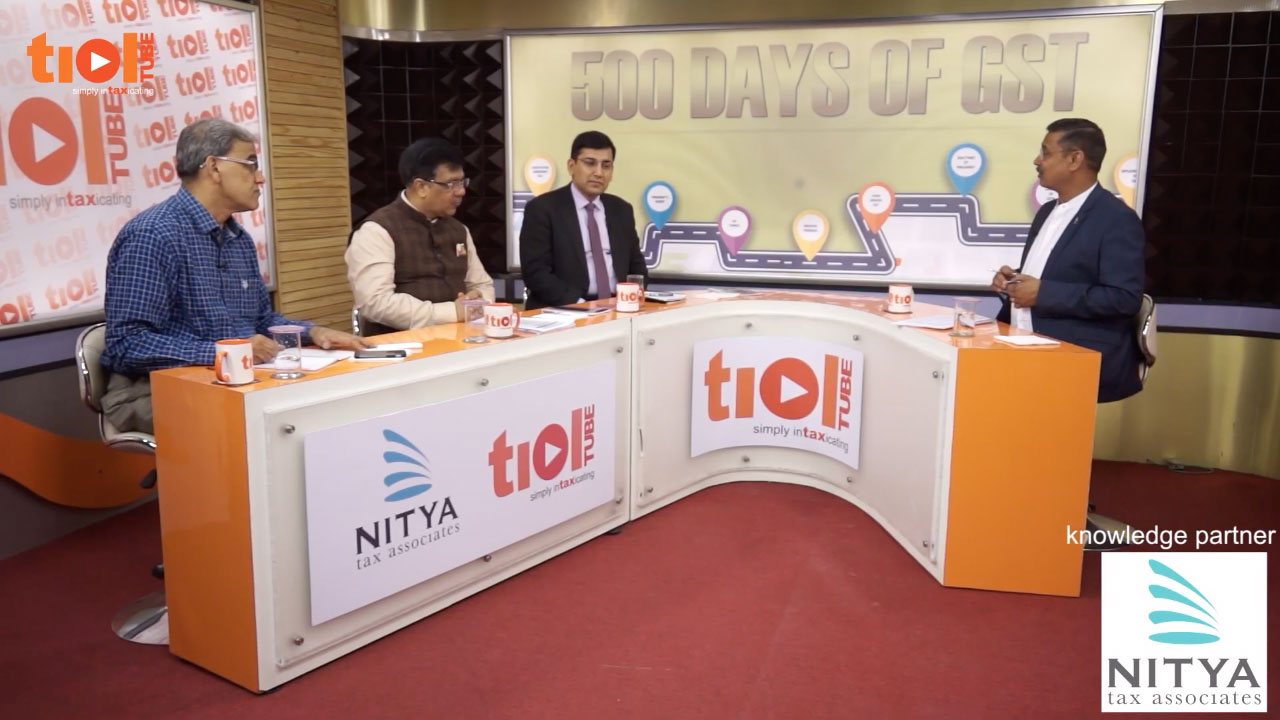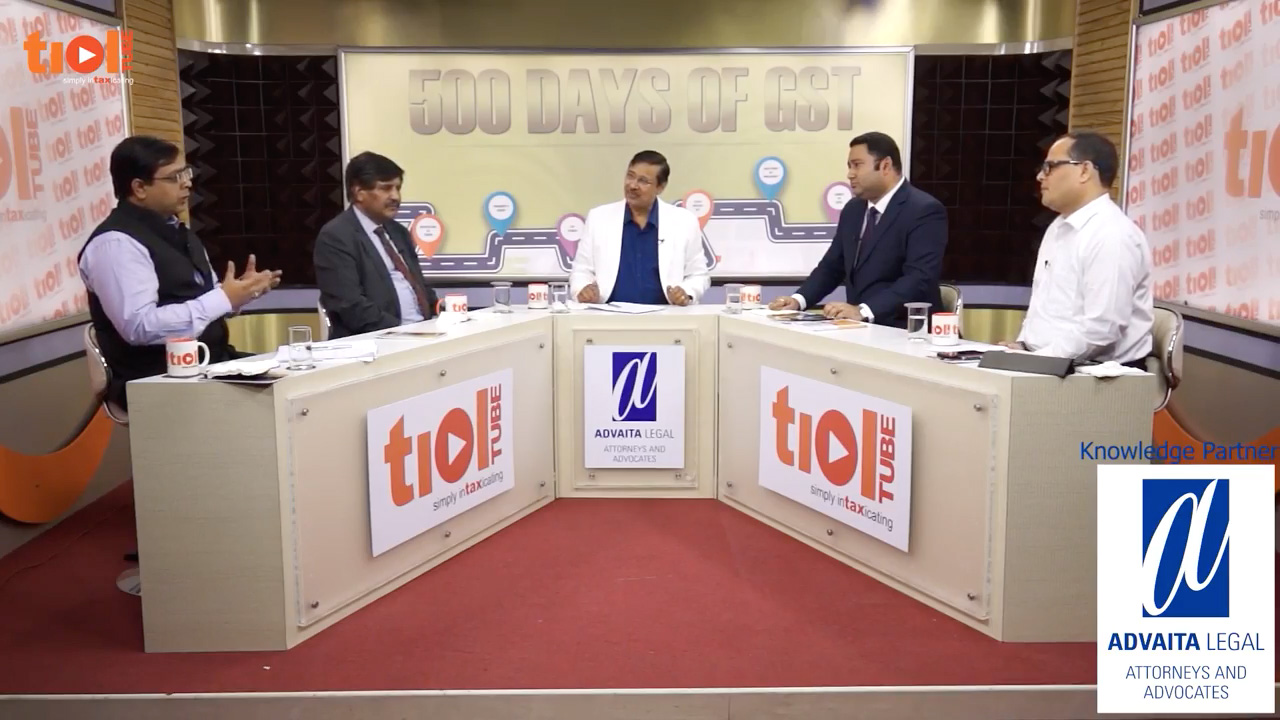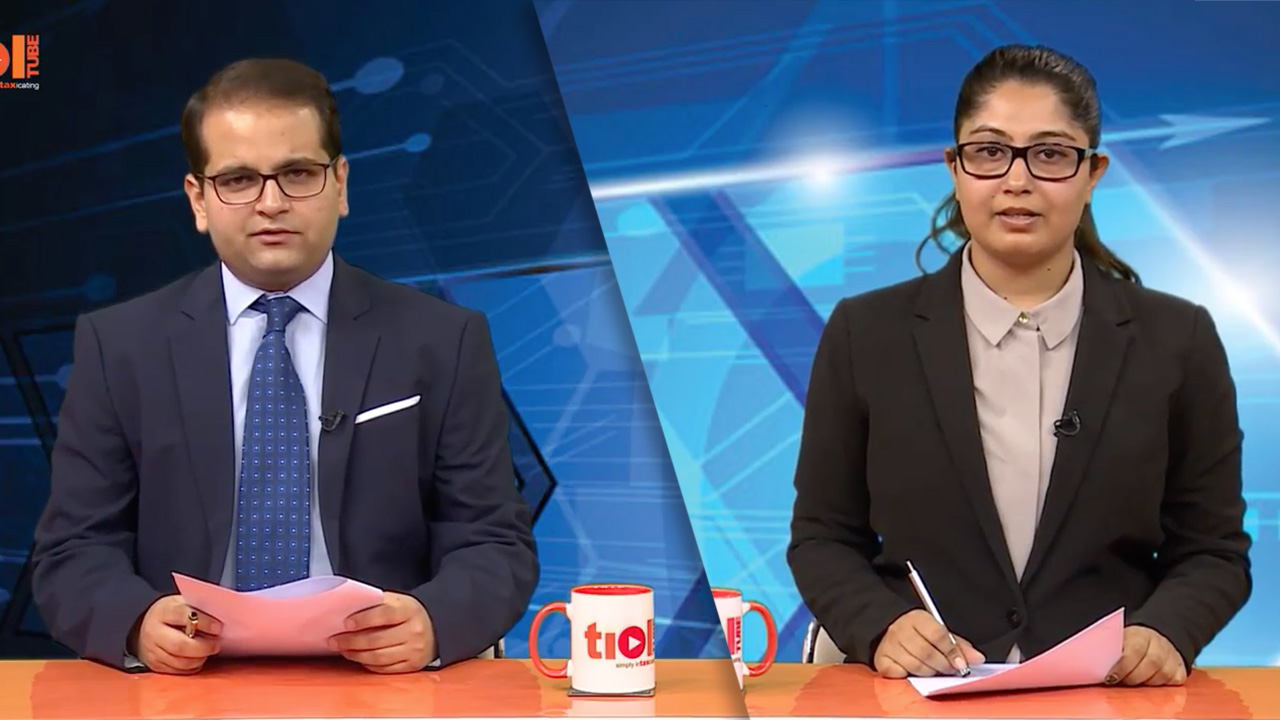|
SERVICE TAX
NOTIFICATION
stnot18_001
Exempting the payment of Service Tax on services by way of granting of right of way by local authorities for the period commencing from the July 1, 2012 and ending with the June 30, 2017 CASE LAWS
2018-TIOL-3605-CESTAT-MUM + Case Story
International Gemological Institute India Pvt Ltd Vs CST
ST - Training conducted in the subject of gemology is purely commercially oriented and was not meant for the purpose of issuance of Degree or Diploma or any qualification - benefit of Notification No. 24/2004-ST is not available as the appellant is not a vocational training institute - since appellant had furnished the information in the month of January 2011 and thereafter, the SCNs were issued within the normal period and, therefore, the same are not barred by limitation of time - impugned order had considered both factual and legal issues at length and arrived at the conclusion and the same cannot be disturbed without proper substantiation - Appeal dismissed: CESTAT [para 4, 5]
- Appeal dismissed: MUMBAI CESTAT
2018-TIOL-3600-CESTAT-MAD
Kals Distilleries Pvt Ltd Vs CCE & ST
ST - The assessee company is engaged in distilling & bottling of IMFL manufactured under its own brand as well as other brands owned by M/s USL - The Department opined that the assessee provided BAS to M/s USL by manufacturing IMFL under brands owned by M/s USL & that it received consideration from M/s USL in this regard - Hence the Department sought to tax such consideration amount by adding it in value of taxable service - The assessee was also held to be ineligible for exemption under Notfn No 39/2009-ST as it had failed to satisfy the conditions laid down therein - Duty demand was raised with interest & penalties u/s 77 & 78 of Finance Act 1994.
Held: Merely because two audit objections were conveyed in a single letter by the Department, the asssessee cannot claim that the first SCN having been issued earlier, would be grounds enough make the second SCN issued subsequently to be barred by limitation - The assessee further claimed that the issue of taxability of contract bottling is pending before the Apex Court in the case of International Spirits & Wines Association of India (ISWAI) - However, it is seen that the taxability of contract bottling has been confirmed by the High Court of Delhi in Carlsberg India Private Ltd. & the appeal in ISWAI was only admitted by the Apex Court, which did not stay the taxability of contract bottling - Moreover, if Cenvat credit availed is reversed with interest after clearance of final product, then benefit under Notfn No 39/2009-ST will be available to the assessee - Hence matter is remanded to the adjudicating authority for confirming such payment of pre-deposit, payment of interest on credit amount taken by assessee & re-calculate the duty liability after giving exemption under Notfn No 39/2009-CE: CESTAT (Para 1,6.1-6.4,10)
- Case remanded: CHENNAI CESTAT
2018-TIOL-3599-CESTAT-MAD
Sify Technologies Ltd Vs CST
ST - The assessee is registered with department for discharging service tax under different categories like online information and data base access / retrieval, internet cafe, leased circuit services and franchise service - They were also rendering certain services on which service tax is not payable - They were availing CENVAT Credit of tax paid on various input services used by them, in terms of CCR, 2004 - The period involved is 1.4.2005 to 31.3.2008 - Revenue objected to their availing full credit on common input services and utilizing the same without any restriction - The facts of the case are not in dispute - It is only the application of provisions of Rule 6 to the facts of the case which are in dispute - In respect of certain services, assessee have maintained separate accounts in terms of Rule 6(2) which was found to be correct and proper by original authority - However, in respect of certain other common input services they have followed the scheme under Rule 6 (3) - The mechanism adopted by assessee for following both sub-rule (2) and sub-rule (3) in respect of different common input services defeats the very restrictions placed under different conditions of sub-rule (3) - As seen in present case itself that assessee invoked clause (c) of sub-rule (3) and submitted that they were not hit by restriction of 20% in utilizing credit on tax liability of final output services, on the ground that total credit availed under sub-rule (3) falls short of the same - This claim is misleading and ignoring the fact that they have maintained separate accounts and availed full credit in respect of common input services attributable to taxable output services in terms of sub-rule (2) - In respect of common input services for which assessee is entitled to credit they have an option either to follow sub-rule (2) or sub-rule (3) - Following both selectively in respect of selective common input services is against the basic principle and the legal bar under sub-rule (1) - Accordingly, original authority is correct in disallowing the credit which was availed by assessee under sub-rule (3) - Regarding submission of assessee that the present order is beyond the scope of remand directions of Tribunal, the Tribunal made an open remand of the case for a de novo adjudication - As such, original authority examined the issue and passed the order - The assessee also made submission that they should be eligible for at least proportionate credit attributable to taxable output service - During the relevant time, there is no such provision available to assessee - Regarding invoking extended period and penalty, the assessee was actually following Rule 6 (3) with restrictions of utilisation upto 20% in terms of Rule 6 (3) (c) upto August 2005 - Admittedly, they have now knowingly switched over to the present system of selectively following Rule 6 (2) as well as Rule 6 (3) which resulted in the present dispute and proceedings - Accordingly, the appeal is without merit and, accordingly, the same is dismissed: CESTAT
- Appeal dismissed: CHENNAI CESTAT
CENTRAL EXCISE
2018-TIOL-3602-CESTAT-HYD
CC & CE Vs Elico Ltd
CX - Assessee is the manufacturer of testing equipments like Digital PH Meters and Flame Photometer - They cleared the goods without payment of Duty claiming exemption under notfn 10/97-CE - After getting the details of invoices and other documents from assessee, a SCN was issued invoking the extended period, seeking to deny the benefit of said exemption notfn - In respect of clearances where Essentiality Certificate was not issued by Registrar, the original authority observes that explanation clarifies that head of university means 'the Registrar' and for colleges he held that competent person to issue the certificate as per the notification was the Principal of the college - He further admits that the colleges in question were registered with DSIR as required under the notification but dropped their demand on this count - With respect to the clearances made for non-research or dual purpose, he observed that in the certificate the purpose was mentioned as for "Laboratory purposes, Research & Lab purposes or for conducting practical classes and research in the Institute" and held that such certificates are, in his opinion, not invalid as per the notification - In respect of the cases where there was no evidence that the Institution was registered with DSIR, he allowed the benefit of the notification even though there was no certificate of registration on the ground that the procurement order mentions the registration number - The original authority has taken a broader view of the intent of the exemption notfn and allowed the benefit of notification while admitting that some documents as required under notification such as Registration Certificate of DSIR or the specific purpose for which equipment is supposed to be used were missing - In view of the law laid down by Apex Court in the case of Dilip Kumar & Company , the entitlement of the exemption notification has to be examined and strictly consider with reference to each of the clearances which requires detailed examination of the documents - Therefore, this is a fit case to be remitted back to the original authority for reexamination: CESTAT
- Matter remanded: HYDERABAD CESTAT
2018-TIOL-3601-CESTAT-MAD
Deva Knitwears Vs Commissioner of GST & CE
CX - The period of dispute relates to April, 2003 to December, 2003 - During disputed period, invoices for clearance of goods from the factory were required to be done so under cover of an invoice in conformity with Rule 11 of the erstwhile CER, 2002 - A number of details were required to be compulsorily indicated on such invoices - It is pertinent to note that none of the invoices recovered at the time of visit of officers indicated any of these particulars, leave alone details of duty payment - It also emerges that none of the records available at the time of visit contained any details or documentations of such discharge of duty liability nor was any proof of such duty payment produced at the time of visit of the officers - Tribunal agrees with the decision of lower appellate authority upholding the demand in respect of clearances made by assessee during the period from April, 2003 to December, 2003 - The appeal of assessee on this score is therefore dismissed - Coming to the dispute with regard to disallowance of CENVAT Credit amounting to Rs. 6,98,444/-, assessee, in their belated ER-3 returns, filed in February, 2004, had indicated a credit availment of Rs. 16,52,691/- - Out of this, an amount of Rs. 6,98,444/- was disputed by the Department - The one aspect that has been flagged by adjudicating officer is that on the date of the officers' visit, the assessee had not maintained any records for availment of input credit - It is however pertinent to note that SCN while referring to CENVAT Credit availment by assessee as shown in their ER-3 returns, has however found fault with some of the availments based on alleged ineligible documents like invoices issued by depot which is not registered, invoices not issued as per Rule 11 of the Rules and invoices issued prior to the date of registration, amounts to Rs. 6,98,444/- only - Thus, less than half of the amount claimed as CENVAT Credit by assessee in their ER-3 returns amounting to Rs. 6,98,444/- was disputed by Department - Assessee is very much eligible to avail the remaining disputed CENVAT Credit amount of Rs. 6,98,444/- - That part of impugned Order upholding the decision of Original Authority to the contrary cannot then be sustained and are set aside.
Coming to the penalty imposed under Section 11AC of the Act in respect of the duty liability of like amount, though the assessee had failed to discharge the Central Excise duty, they cannot be saddled with the intention to evade payment of duty for the reason that they had enough CENVAT Credit in their accounts for the disputed period so as to enable them to pay the duty - For these reasons, allegation of suppression of facts with intention to evade payment of duty so as to impose penalty under Section 11AC is absent in the present case - The equal penalty of Rs. 12,30,993/- is therefore set aside.
Further, as disputed CENVAT Credit of Rs. 6,98,444/- has already been held in favour of assessee, the equal penalty imposed on that score under Rule 12 of CCR, 2004 will automatically be extinguished: CESTAT
- Appeal partly allowed: CHENNAI CESTAT
CUSTOMS
NOTIFICATION/ PUBLIC NOTICE
dgft18not044
Amendment in Para 4.32(i) of Chapter 4 of the Foreign Trade Policy 2015-20
dgft18pn051
Wastage Norms and Value Addition in respect of Gold religious idols (only gods and goddess) of 8 carats and above (upto 24 carats) under Para 4.60 and 4.61 of HBP 2015-20
ctariff18_078
Govt amends Notfn No 57/2000-Cus granting exemption on Gold, Silver & Platinum imported under certain schemes
CASE LAWS
2018-TIOL-3603-CESTAT-DEL
LR Maurya Vs CC
Cus - Assessee is a manufacturer and exporter of handmade carpets/Rugs - They had a related concern in United States under the name and style of Imperial Rugs - The assessee had exported carpets sometime in year 2007 to be the said Imperial Rugs - USA for the purpose of sale, business of renting - Subsequently, due to adverse business conditions, assessee decided to close its operations in USA and decided to re-import the stock lying with them at Imperial Rugs, USA - Accordingly, assessee imported first consignment under bill of entry at JNCH, Navasheva - The assessee has declared 'Country of Origin' as 'USA' with respect to Bill of Entry - The assessee wanted to correct the said error under the provision of Section 149 of Customs Act, however, that request was not acceded to by the Department - Said error is purely clerical in nature, as assessee had declared the goods as old and/or used - Only on said basis, it cannot be said that the assessee has misdeclared the goods in order to clear their goods - With respect to second Bill of Entry, there is no misdeclaration by assessee as alleged by department - That sofar the enhancement of value is concerned, Rule 12(2)(iii)(d) is not applicable in as much as there is no mis-declaration of goods - The Department has not produced any evidence to show that the relationship between the parties has influenced the price - Therefore, the reasons for rejecting the transaction value is not in consonance with law and therefore liable to be set aside - The goods are not liable for confiscation as well - Since the charges of misdeclaration & undervaluation are not sustainable in law, the differential duty demand is liable to be set aside along with penalties imposed and redemption fine imposed: CESTAT
- Appeals allowed: DELHI CESTAT
|
|








